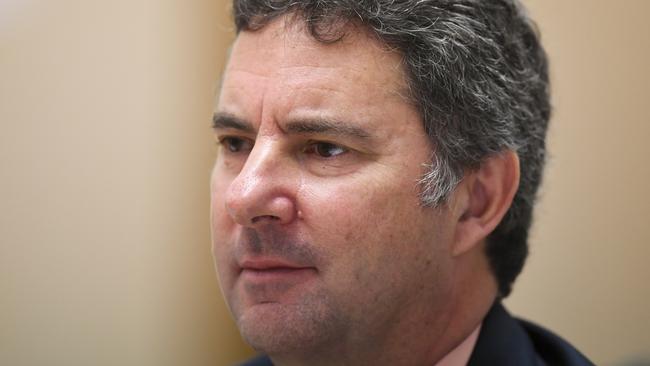Tidal wave of social disruption lies ahead, warns CSIRO
Resource scarcity, drug-resistant superbugs, disrupted international trade, an ageing population and increasingly unstable climate feature in the ‘megatrends’ identified by the CSIRO.

Resource scarcity, drug-resistant superbugs, disrupted international trade, an ageing population and increasingly unstable climate feature in the “megatrends” identified by the CSIRO to dictate how Australians will live and work over the next two, uncertain decades.
In a 10-yearly update released on Wednesday, the research agency runs the ruler over the sobering threats to the health, security and prosperity of a nation still in the throes of pandemic – as well as the potential for science and technology to meet the emerging challenges.
“Australia is at a pivotal point,” said CSIRO chief executive Larry Marshall. “There is a tidal wave of disruption on the way and it’s critical we take steps now to get ahead of it.”
The outlook to 2042 is deeply mixed. The devastation caused by Covid-19 underlined the heightened risk of infectious diseases in line with global population growth, increasing air travel, urbanisation, livestock handling and wildlife harvesting, the Our Future World report warns.
Drug-resistant germs killed more people worldwide than malaria and HIV and could slash up to 3.8 per cent from global domestic product if not contained; chronic diseases continue to surge, with nearly half of all Australian adults reporting one or more ongoing health condition and more – 66.4 per cent in 2017-18, up from 61.1 per a decade earlier – are overweight or obese.
Taking into account the impact of Covid on population growth through paused immigration and existing trends around longer life expectancy and lower fertility, the proportion of the population aged over 65 is expected to increase from 16 per cent in 2019-20 to 23 per cent in 2060-61, the CSIRO says. By then, the ratio of working-age people to those eligible to retire will have gone from 4.0 to 2.7, placing extra strain on national finances.
The annual cost of natural disasters driven by climate change is projected to hit $39.3bn by 2050, triple the bill in 2017. “This report presents CSIRO’s latest thinking on global megatrends that are likely to impact Australian organisations over the next 20 years,” the agency says. “These refreshed megatrends are positioned in the current context, as Australia and countries around the world navigate their way beyond the Covid-19 pandemic.
“From global supply chain disruptions to geopolitical tensions (and) significant social upheaval, the pandemic has created much uncertainty for organisations, which makes it difficult for leaders to plan long-term.
“At the same time, this disruption has opened up new opportunities to accelerate change, particularly in the realm of digital transformation.”
Compared with other advanced economies, Australia has captured less value from digital innovation: 7.4 per cent of GDP here, versus 11.2 per cent.
The nation must to tap into opportunities to accelerate digital adaptation, given next-wave innovation is expected to generate $10-15 trillion internationally, with existing technologies contributing $140bn-$250bn to our GDP by 2025, the CSIRO says.
Contrary to the global trend, research and development expenditure as a share of GDP in Australia declined from 2.1 per cent in 2011-12 to 1.8 per cent in 2019-20. An R&D outlay of $35.6bn across all Australian organisations in 2019-20 was less than what tech giants Amazon and Alphabet each spent.
Post-Covid, more than 72 per cent of Australians prefer a hybrid work arrangement to working exclusively from either home or the office, the report says.
This is not cost-free. Research had shown that teleworking yielded greater worker satisfaction and savings for business but hampered communication and knowledge flows among employees and managerial oversight.
The report is an update of CSIRO research in 2012 and names the seven megatrends as: adapting to climate change; leaner, cleaner and greener; an escalating health imperative; geopolitical shifts; driving into digital; increasingly autonomous; and unlocking the human dimension.








To join the conversation, please log in. Don't have an account? Register
Join the conversation, you are commenting as Logout